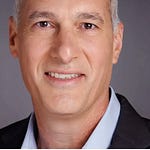Sarah Applebaum, Partner at climatetech and impact-focused Venture Capital Fund Pangaea Ventures, says investing in a startup is like “Instagram versus reality.”
“When you invest in a company, it's about the best-case scenario, you paint this rosy picture of how the company is going to perform and how the markets are going to unfold, and what the profile of customers are going to look like.
“It's never exactly how you think it's going to turn out. Sometimes it's better, sometimes there are roadblocks and obstacles in the way, and it's really about the tenacity and the ingenuity of the founders in the management team around how they handle that.”
Pangaea invests in companies that are leveraging advancements in material science, chemistry and biology that help move the needle on big global challenges related to climate change, food and water security and healthcare.
For Sarah, working as an investor is the fulfilment of a long-standing, teenage dream to work with for-purpose, climatetech businesses: “I studied environmental science and I went back to school to get my MBA in Business and Sustainability to refocus my career into environment and climate business.”
She was interviewing with consultancy firms that had sustainability practices when she stumbled into investing through an introduction to the Pangaea team: “I didn’t know a single thing about venture capital. I just thought what they were doing as an organisation was so interesting, to be at that nexus of breakthrough innovations and have the ability to accelerate their growth and adoption in the market.
“When I joined Pangaea in 2012, it was just the start of the hype in the industry. Shows like Silicon Valley were on TV. Dragon's Den and Shark Tank were just starting.
“It wasn't until I jumped into working with Pangaea, into the deep end with both feet, that I also discovered I was comfortable living in this world of ambiguity and entrepreneurship.”
Sarah sums up her investor role as “dynamic, intellectually curious and people-based.”
Her life philosophy revolves around “waking up every day and genuinely loving what I do, but also having balance – it's not all about work. For me, balance means getting out of the office or house, spending time in nature.
“I get my bike on the road, take the dog to the dog beach, have dinner with friends. If it's wintertime, I grab my snowboard and head to the local mountains.”
Do you have a memorable experience as an investor that stood out, where things didn’t go as planned?
Pretty much every experience doesn't go exactly as planned, whether it's around the initial deal structure or things you will learn in due diligence.
To help ensure that when things go in unexpected directions our team and the teams we invest in are best equipped to handle it, we spend a lot of time in our due diligence process.
We drill down into the teams that we're investing in: how do they work together? How do they make decisions? How do they react when things don't go well? What is their default behaviour in times of stress? And then how can we work to support them to get through their roadblocks as they're navigating challenges in building the company?
What is your ideal relationship with the companies you work with and invest in?
We work very closely with all of the entrepreneurs that we invest in as a team.
On a structural level, we are often on the board of the companies that we invest into, that sets up that formalised relationship, but we're talking to the CEOs of our portfolio companies regularly, depending on what's happening in the business. It could be a weekly, or biweekly catch up call, or it can be monthly.
One of the things that I've put a lot of emphasis on is building long term relationships with founders – whether or not they're in our portfolio. Most of the companies we've invested in we've gotten to know over two or three years sometimes before we even have that conversation about writing that first check.
And then there are many Founders and CEOs who we will never invest in, but still maintain very valuable relationships and we might add value to their business in other ways.
Who would you like to receive a pitch from?
We invest in commercial-stage companies that help solve one of the big global challenges that we're focused on: so companies that have already gone through that lengthy research development cycle and have at least one strong reference customer, and companies that have a lot of conviction around their unique technology and value proposition, and that are bringing a commercially ready and economically viable solution to the market.
What’s the best pitch you’ve seen?
The best pitches are with teams that are prepared and have a good understanding of who we are, what we do, and what we invest in. They know their market, have deep conviction around what it is they're doing and understand the economics of their business. It has to be cost-effective and there has to be a customer there.
What are common pitching pitfalls?
There are two big mistakes that I see founders making.
One is not understanding your audience, so founders that reach out and try and pitch me on their e-commerce or SAS startup. It's not what we do, so it's not a good use of their time.
The second mistake is founders that don't understand the market or who feel like they have pressure to know all of the answers, as opposed to saying, ‘great question, I don’t know, but let me find out.’
What's the number one question that a founder should be prepared for if they're pitching to you?
Number one is ‘do you have a customer and will they buy again?’
We're not going to get into the weeds on how the technology works in the first, or maybe even the second meeting. What's relevant is that it's a big market, it's growing relatively quickly with a strong tailwind behind it, and trying to drill down and understand your customer buying behaviour. Do you have that customer profile persona down pat, or are you still trying to figure out that product-market fit?
What areas of climatetech do you see as having the biggest growth potential in coming years?
I think both decarbonisation and plant-based proteins are going to continue to grow. But looking at climate-related events in the last six weeks, extreme flooding in parts of Europe, Germany, in particular, massive heat waves across Canada and in the U.S. – it’s going to dramatically impact how and where we produce food.
Agriculture is also a substantial emitter when it comes to greenhouse gas emissions, so I think that's going to be where we'll see a lot of focus, both from a climate change, resiliency perspective, but also thinking about how we can reduce our footprint and how we feed the world.
Have you worked with any startups in those areas that you thought were pretty outstanding?
Absolutely. We've got several investments in the agriculture agritech space; we have a company called Prime Roots out of California, they're in the plant-based protein space.
We just invested in a company called Tidal Vision, and they’re a circular economy company taking seafood waste from the fishery industry. Waste shells from lobsters, crabs and other crustaceans which would otherwise end up in landfill or be tossed back in the ocean. They extract a naturally occurring biopolymer from the shells called chitin and it's used in a myriad of applications from wastewater treatment to textile processing or as a soil additive to increase agricultural yields.
We've also have investments in companies like Calysta which is using methane to produce protein for animal feed.
What’s your advice for Green Techpreneurs looking for investment?
I know that it's very, very tough for a lot of these cleantech startups to find the investment they want. So don’t get discouraged. Just because you hear 10 - 50 nos from investors, doesn't mean that there's not a viable business here. It's just not the right fit for them. We see 1,000 investment opportunities a year. There’s a lot of reasons why we say no, or not right now, and other funds are in similar boats.
Especially if this is your first fundraiser, collect feedback you're getting from investors. Listening to that feedback will help you refine your pitch and better target the investor group that is the right fit for what you're doing.
If you had a magic wand and could make one change in cleantech, what would it be?
It would be on the energy side – figuring out how to make fusion and nuclear work cost-effectively. Nuclear works, but there's a lot of environmental and regulatory considerations to make fusion work. It would solve a lot of our problems around transport and energy fuel and transportation. We'd have this perpetually working global source of clean energy where your byproduct is essentially seawater.
There are a few spots left for sponsorships. If you'd like to advertise and support the newsletter, you can book here.
Sarah’s book recommendation
Invisible Women by Caroline Criado Perez
“I highly recommend it for anybody who's interested in looking at the world through a gender lens.”
Eco-living hacks I’m loving:
Whogivesacrap – toilet paper that's good for the planet. It’s made from 100% recycled paper and bamboo and 50% of profits are donated to build toilets for people who don't have any. I love everything about this brand. Check them out with my affiliate link.
Community Notices
Share your product, services, book, or announcement to the Green Techpreneur. Must be a good fit for the climatetech and entrepreneur community.
👉🏼 Syllucid is investigating electronics supply chains and producing products that solve the problems they find. Its first product is the first USB Cable in the world that supports Fairtrade Gold. Tiny products like USB cables hide a massive environmental footprint. Help Syllucid to make electronics fair and sustainable and back the first USB cable in the world that supports Fairtrade Gold.
👉🏼 Peter Dugandzic is looking for consulting and/or board director work. He has extensive cleantech experience and is well versed in acquisitions. Drop him a line at: dugandzicp@gmail.com
Make a Connection
Whether you’d like to find a mentor, an employee, a job, a business partnership, or just meet someone new over a virtual coffee who’s just as passionate about building greentech businesses – hit the button below and I’ll post a shout out for you in the next newsletter.















Share this post